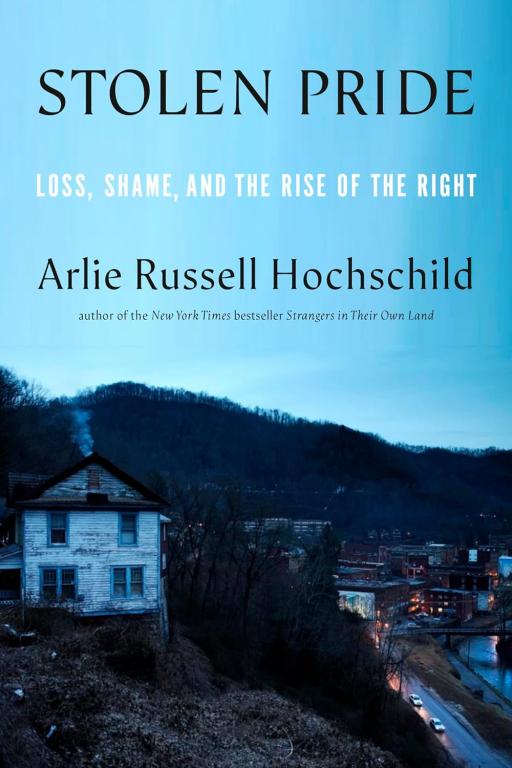What is a Pride Economy?
In Stolen Pride, Arlie Hochschild shares how powerful dynamics of honor and shame shape America’s social and political fabric. She does so by describing what she dubs a “pride economy”? What is that? Well, I’m glad you asked.
The Economics of Pride
A “pride economy” refers to a social and economic system where pride functions as a form of currency, often in place of adequate financial compensation or social status. Workers find meaning in their labor. In part, this sense of pride is what sustains them. But this system has heavy costs for both individuals and the communities around them.
Arlie Hochschild’s concept of the “pride economy” sheds light on how people’s pride in their work is simultaneously encouraged, expected, and subtly exploited. This idea is crucial for understanding the nuances of many modern workplaces, especially in service-oriented roles where emotional investment is high, and the returns can be strikingly low. Understanding this economy of pride is essential if we’re to make any sense of the social and emotional challenges many workers face.
 At its core, a pride economy operates on the principle that social and emotional rewards—respect, recognition, a sense of dignity— act as substitutes for financial compensation or better working conditions. For many workers, this pride isn’t superficial or fabricated; it’s a real, deeply felt attachment to the work they do and the impact they make.
At its core, a pride economy operates on the principle that social and emotional rewards—respect, recognition, a sense of dignity— act as substitutes for financial compensation or better working conditions. For many workers, this pride isn’t superficial or fabricated; it’s a real, deeply felt attachment to the work they do and the impact they make.
Whether it’s teachers, caregivers, social workers, or employees in service industries, people often derive significant satisfaction from knowing their work matters, that they’re helping others or contributing to society in meaningful ways.
When Pride is Compensation
However, when pride becomes a substitute for tangible compensation, it crosses into problematic territory. The question becomes: if pride fills the void left by low pay or poor working conditions, is it a genuine motivator, or is it a clever means of exploitation?
One defining feature of a pride economy is that it incentivizes workers to internalize a sense of duty and responsibility. This can lead to a self-imposed pressure to take pride in one’s work, almost as a moral obligation. For example, teachers may feel responsible not only for students’ academic growth but also for their emotional well-being, often going above and beyond what their role technically requires. This “extra mile” becomes an unspoken expectation, almost a condition of employment, even when it lacks formal recognition.
Employers and society send a subtle message that these professions should be motivated by something “higher” than money—the love of students, the desire to serve, or a sense of calling. While pride can indeed be a profound source of motivation, in the pride economy, it is twisted into a justification for the lack of material rewards, leaving workers in a state of emotional depletion, or worse, burnout.
The Pride Paradox
A second defining feature of the pride economy is its built-in paradox, a point Hochschild calls the “pride paradox.” By this, Hochschild primarily refers to the sense of pride people feel for achieving financial well-being through individual hard work, yet they’re vulnerable to various circumstances (e.g., political, economic, or social) that undermine their ability to ensure economic stability; consequently, they feel shame because they hold firmly to the notion that their success or failure depends entirely on whether they personally have worked hard enough.
There is also another secondary sense that one could understand the “pride paradox.” Workers often feel a profound sense of pride in the service they provide, yet they receive mixed messages from society about the value of their work. A nurse may find deep meaning in her role, knowing she’s there for patients at their most vulnerable. However, low wages, long hours, and stressful conditions simultaneously communicate that society values her work less than other, more highly paid fields.
This tension, feeling both valued and undervalued, leads to a destabilizing emotional conflict. Workers are left not only feeling unappreciated but, in some sense, betrayed. This also is the paradox of pride: they’re encouraged to take pride in work that society ultimately refuses to honor in meaningful, tangible ways.
Emotional Investment
In a pride economy, emotional investment becomes a form of capital that workers are expected to contribute, often without reciprocity from employers. Emotional labor is required, especially in roles that involve caregiving or customer service. Workers in these fields are not just expected to perform tasks; they’re expected to genuinely care, to be kind, patient, and compassionate.
But this emotional labor is rarely compensated adequately. While pride may give people a reason to perform well, it also makes them vulnerable to exploitation, as they may continue to invest deeply in their work even when it is detrimental to their own well-being. In this way, the pride economy capitalizes on the goodwill and dedication of workers, transforming their pride into an unacknowledged subsidy that benefits employers and society at large.
A pride economy also creates a cultural environment in which social status becomes tied to one’s willingness to take pride in one’s work, no matter how difficult or low paying. People are encouraged to demonstrate pride as a marker of character, resilience, or commitment. The narrative around jobs that require significant emotional labor is often that the best workers are those who view their work as a calling, not just a paycheck.
There’s a Trap
This emphasis on calling rather than compensation is one of the pride economy’s greatest strengths… and its greatest trap. While some may genuinely feel called to their work, many others feel trapped, unable to admit dissatisfaction because it would imply a lack of pride or gratitude. Society celebrates those who “love what they do” but rarely questions why people must love their work to tolerate low wages or poor conditions. In this sense, the pride economy can even erode solidarity, as workers who feel dissatisfied may fear they’re failing some moral test of commitment.
The pride economy ultimately places a heavy burden on workers, asking them to find purpose, identity, and dignity in their work, even when that work isn’t properly valued or supported. It shifts the responsibility for fulfillment and meaning away from employers and onto employees, subtly suggesting that any dissatisfaction is a failure of the individual, not the system. But this approach isn’t sustainable. It drains workers emotionally, isolates them socially, and obscures the deeper issues at play.
Understanding the pride economy shows us how pride is both empowering and a trap.
It’s a reminder of the importance of fair compensation and recognition, not just as an economic necessity but as a way to honor the emotional labor people invest in their work. Recognizing and addressing the limits of the pride economy can lead to a more balanced system—one that respects and values pride without using it as a substitute for real support.













